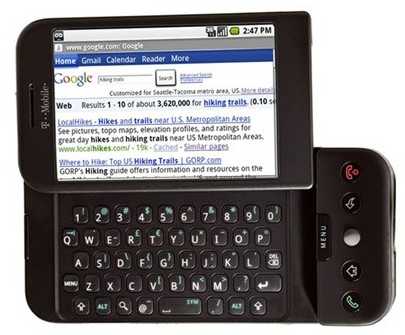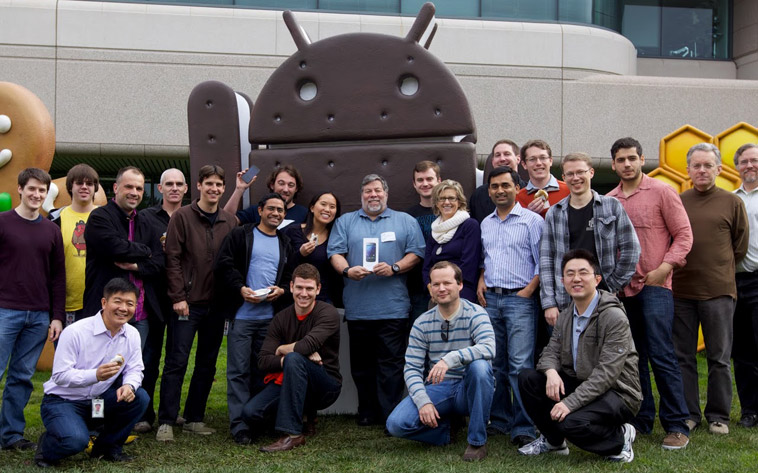Android is four years old

On September 23, 2008, the mobile operator T-Mobile, in cooperation with Google, launched HTC-made smartphones manufactured by HTC under the T-Mobile G1 brand, on which Android 1.0 was installed, and the official SDK version was released almost immediately - it became possible for the new system to write programs.
At the moment - the second half of 2012 - Android is the most popular system on the smartphone market, accounting for 64% of the global market for sold devices, and the number of programs in the Google Play app store exceeds 600,000 units. For all the time of the store was completed 20 billion installations of applications. According to Andy Rubin, Google’s Android development manager, 1.3 million Android devices are activated daily in the world.
')
The largest manufacturer of smartphones and tablets on Android is the South Korean company Samsung, followed by companies such as Sony, Motorola, LG, ZTE and others. According to analysts from Digitimes Research, by the end of 2012, Android will overcome the milestone of 70% of the global smartphone market.
The man to whom the world owes the advent of Android is Andy Rubin, who, after receiving a bachelor's degree in computer science in 1986, began working at Carl Zeiss, creating there precise robot systems for manufacturing optical lenses. From 1989 to 1992, Rubin worked at Apple as a manufacturing engineer. Shortly thereafter, at Apple’s subsidiary General Magic, his responsibility was to develop the Magic Cap software for managing mobile devices. In 1995, Rubin again changed jobs, becoming a member of the MSN TV project, starting to develop the technical implementation of Internet TV for Microsoft.
Finally, in 1999, Andy, together with colleagues Richard Miner, Nick Sears and Chris White, founded his own company, Danger Inc., which developed programs for the mobile operator T-Mobile. In 2003, Rubin left the company he founded, which in 2008 was bought by its former executives, Microsoft.
Then, in 2003, he founded a new company, Android Inc., whose goal was to create an operating system to compete with Blackberry. In 2005, after Google expressed a strong interest in acquiring Android Inc., the company became a division of the search giant, and Rubin himself took over as Vice President of Mobile Technology (Senior Vice President of Mobile and Digital Content). Paying tribute to Apple, which in 2007, without any doubt, made a revolutionary breakthrough in mobile technologies, launching the iPhone, the Android team also appreciated all the advantages of touch screens, and the operating system being developed was reoriented to the release of devices of the already well-known form factor.

Source: https://habr.com/ru/post/152010/
All Articles